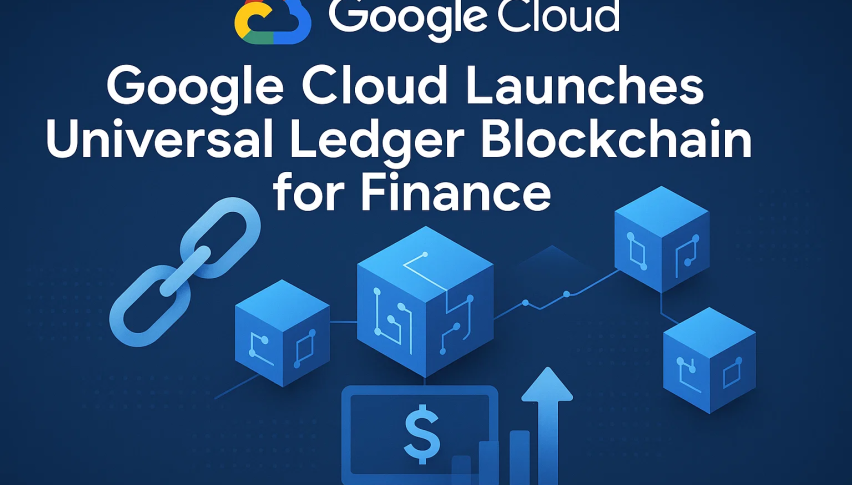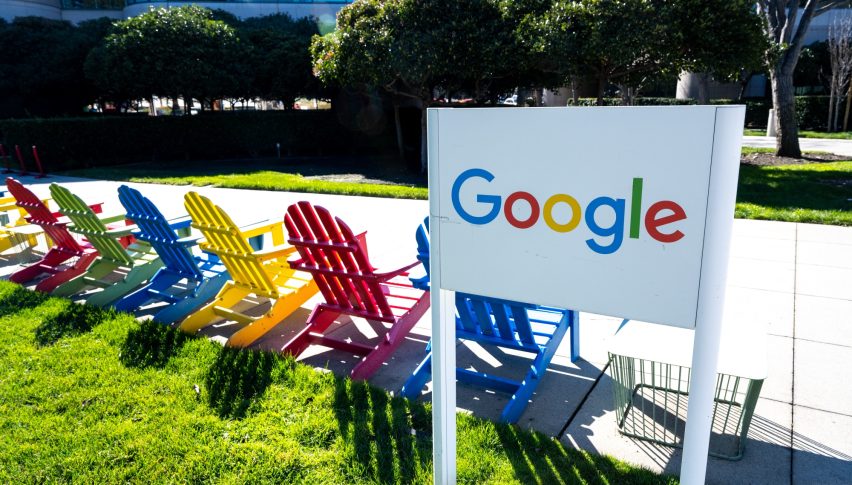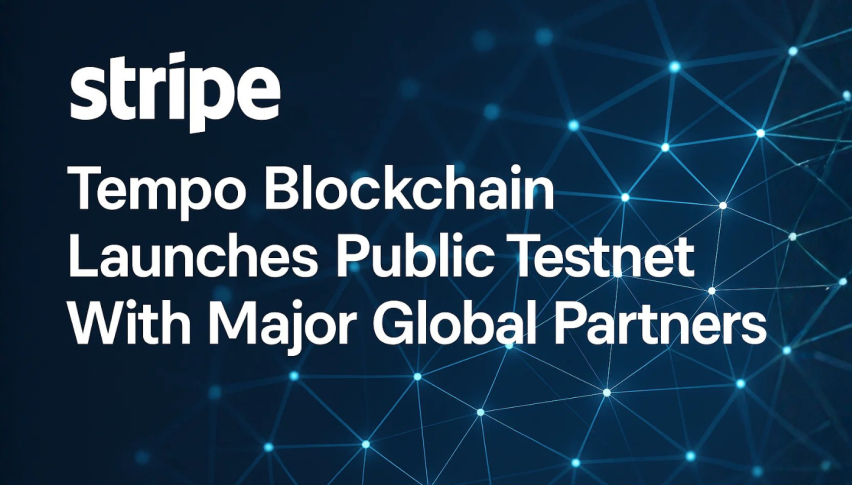Google Cloud Launches Universal Ledger Blockchain for Finance
Google Cloud has announced the launch of its own blockchain platform called Google Cloud Universal Ledger (GCUL).

Quick overview
- Google Cloud has launched its blockchain platform, Google Cloud Universal Ledger (GCUL), currently in private testing for financial applications.
- GCUL is a Layer 1 blockchain designed as a neutral infrastructure for banks and payment providers, supporting Python-based smart contracts.
- The platform emphasizes compliance and accessibility through a single API, promising fast and low-cost transactions while adhering to KYC regulations.
- Google Cloud aims to compete with existing blockchain solutions from companies like Circle and Stripe, with full services expected by 2026.
Google Cloud has announced the launch of its own blockchain platform called Google Cloud Universal Ledger (GCUL). The platform is now in a private testnet and is built for payments, settlements, and digital asset management in the financial sector.
Rich Widmann, Global Head of Web3 Strategy at Google Cloud, shared the news in a LinkedIn post on Tuesday. He described GCUL as a “performant, credibly neutral” blockchain that supports Python-based smart contracts.
What is GCUL?
So, what makes GCUL different? According to Widmann, it is designed as a Layer 1 blockchain that acts as a neutral layer for banks and payment providers. He explained that institutions avoid using blockchains tied to rivals.
“Tether won’t use Circle’s blockchain – and Adyen probably won’t use Stripe’s blockchain,” Widmann said. “But any financial institution can build with GCUL.”
Furthermore, Google Cloud has officially described that the platform is private and permissioned, with compliance at its core. It can be accessed through a single API, removing the need for firms to manage their own infrastructure. Moreover, it supports multiple currencies, integrates with wallets, and automates payments while following KYC rules.
As a result, GCUL promises fast, low-cost, and round-the-clock transactions.
Testing and Reactions
Was this Google’s first reveal of GCUL? Not exactly. The initiative was first announced in March in partnership with the CME Group, one of the world’s largest derivatives exchanges. CME has already completed the first testing phase and described it as a step toward “low-cost, 24/7 settlement for collateral, margin, and fees.”
Meanwhile, direct testing with market participants will begin later this year. Full services are planned for 2026, showing Google’s long-term commitment.
In contrast, reactions from the community are mixed. While Widmann calls GCUL a Layer 1 blockchain, some argue that its permissioned design means it is not truly decentralized. However, others see it as a compliance-ready tool that could fit the needs of financial institutions.
Competing with Circle and Stripe
So, how does GCUL compare with rivals? Circle is preparing to launch its Arc blockchain, focused on stablecoin payments and foreign exchange. Stripe is also building Tempo, a high-performance blockchain for payments.
In contrast, Widmann stressed that GCUL is a neutral infrastructure layer. This neutrality, he said, makes it different because any bank or processor can use it without being tied to a competitor’s ecosystem.
As a result, Google Cloud is now entering direct competition with Ripple, Circle, and Stripe, all of whom are racing to lead the future of cross-border payments.
What Comes Next?
What lies ahead for GCUL? Google said more details will be revealed in the coming months. Meanwhile, the network is still in private testing but has already attracted interest from large institutions.
By launching GCUL, Google Cloud is moving beyond hosting blockchain projects. Instead, it is building its own protocol designed to scale globally through its infrastructure. Moreover, with testing already underway and services planned for 2026, the big question now is simple: could GCUL become the trusted backbone for the future of finance?
- Check out our free forex signals
- Follow the top economic events on FX Leaders economic calendar
- Trade better, discover more Forex Trading Strategies
- Open a FREE Trading Account
- Read our latest reviews on: Avatrade, Exness, HFM and XM


